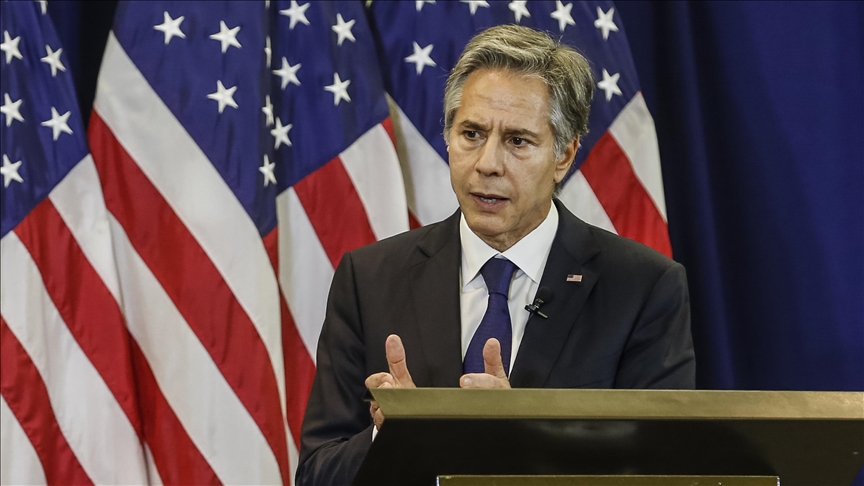Burhan-Hemeti feud plays out in CAR to Washington’s dismay
The border region straddling Sudan, the Central African Republic and Chad has been the focus of intense manoeuvring in recent weeks. At stake is the control of the Vakaga gold mines and the expansion of the Wagner group, against a backdrop of high-level rivalry in Khartoum.
Issue dated 26/01/2023 Reading time 3 minutes Antoine Galindo, Antoine Rolland
General Abdel Fattah al-Burhan and Mohamed Hamdan Dagalo.
General Abdel Fattah al-Burhan and Mohamed Hamdan Dagalo. © Sarah Meyssonnier/POOL/EPA/MaxPPP and Marwan Ali/EPA/Newscom/MaxPPP
Twice this month Central Intelligence Agency (CIA) director William Burns considered making stopovers in Khartoum before changing his mind at the last minute, first on the 12th on the way back from Libya, then on the 24th after meeting President Abdel Fattah al-Sisi in Egypt.
In the meantime, the head of Sudan’s Military Intelligence (MI), Mohamed Ali Ahmed Subir, travelled to Washington. Major General Subir, a very loyal supporter within the Sudanese Armed Forces (SAF) of the de facto Sudanese leader Abdel Fattah al-Burhan met there with with senior representatives of Joe Biden’s administration, both in the State Department and the CIA.
This sequence of events is indicative of Washington’s changing stance towards Sudan. Political freedoms are no longer on the US agenda, having been supplanted by the urgent priority of restoring stability as soon as possible (even if that means legitimising Burhan’s authority) and countering Moscow’s growing regional influence.
Burhan’s great rival, the junta number two General Mohamed Hamdan Dagalo, aka Hemeti, has close ties with the Russian paramilitary group Wagner. His sphere of control now extends to the neighbouring Central African Republic, where Wagner also operates, with the support of his Rapid Support Forces (RSF). This offshoot of the Janjaweed militias that spread terror in Darfur in the 2000s was strengthened by a controversial framework agreement that Sudan’s military and some of its politicians signed last month, as the text enshrined the RSF’s independence from the SAF. The United States and the European Union have powerful financial leverage in Sudan through various aid programmes (AI, 20/01/23).
The Hemeti-Wagner connection was at the heart of Subir’s visit to Washington: by bringing General Burhan back into its fold, the US hopes to tip the balance of power between the junta leader and Hemeti in favour of the former (AI, 17/01/22).
Closing the border
In early December, Hemeti announced that he had closed Sudan’s border with CAR, ostensibly to prevent clashes between CAR’s loyalist forces and rebel groups from spilling over into Sudan. In reality, an informal agreement was reached with Bangui to allow the RSF to intervene in the three northern prefectures of CAR, namely Vakaga, Haute-Kotto and Bamingui-Bangoran. The north-east of CAR is a hotbed of disputes over the control of its gold mines, livestock migration routes and smuggling.
The terms of the agreement were drawn up with CAR livestock minister Hassan Bouba, whom President Faustin-Archange Touadéra has tasked with neutralising hostile armed groups. Bouba, a former rebel leader who joined the government in 2020, paid an official visit to Birao in Vakaga prefecture late last month when he also made a side trip to the border town of Am Dafok in order to meet RSF officers stationed on its outskirts.
Officially, the RSF are only posted on the Sudanese side of the border. However, several sources in the region confirmed to Africa Intelligence that some of its members – perhaps as many as 500 – had crossed at least 30 km into CAR to support Wagner and the CAR army.
Win-win agreement
Via this incursion, the RSF are enabling Touadéra to take on two armed groups that are hostile to him and whose fighters have regularly crossed the border: Noureddine Adam’s Front Populaire pour la Renaissance de la Centrafrique (FPRC) and Ali Darass’ Unité pour la Paix en Centrafrique (UPC). These two leaders are currently in the field: Darass is shuttling between South Sudan and CAR, while Adam was spotted around 20 January in the town of Sikkikede in northern CAR. He is trying to unite and organise his troops in order to maintain his positions in Gordil, Tiroungoulou, and Sam-Ouandja (AI, 06/09/22). Hemeti has meanwhile complained to multiple interlocutors about the increasing activity of another Janjaweed figure (who is nevertheless a rival), Musa Hilal.
The operation could guarantee the RSF access to several gold mines. For their allies in Wagner, the attraction of northern CAR, used as a rear base for Chadian Arab rebel groups, is as much geopolitical as financial. If the Russians were to prosper there, several Western embassies fear that the region could serve as a staging post for destabilising the political transition in Chad, whose leader Mahamat Idriss Déby fears the growing influence of the Sudanese number two in his country. Several sources have mentioned a Chadian rebel group stationed just a few kilometers outside of Um Dukhun in Darfur with the consent of the RSF.
Antoine Galindo, Antoine Rolland

